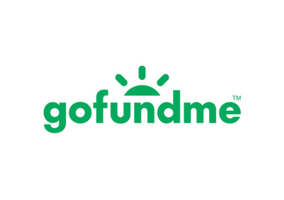A small children’s online safety charity has recorded a more than £2m income rise after it reportedly received donations from social media giants Meta and Pinterest.
Molly Rose Foundation was set up in 2018 in the name of 14-year-old Molly Russell, who took her own life in 2017 “whilst suffering from depression and the negative effects of online content”, according to a coroner’s report.
Pinterest and the Meta-owned Instagram were reportedly named in Russell’s inquest, which concluded in 2022, as platforms she had used to access self-harm and suicide-related content.
Outlets including BBC News reported earlier this year that Meta and Pinterest had made “significant” donations to the charity, which aims to deliver education and support to reduce preventable suicide and tackle online harm.
While details of the payments have not been publicly disclosed, the charity’s recently filed accounts for 2024 now show that it received £2.15m in donations and legacies last year, up from £88,700 in 2023.
Grants made up £2.12m of this amount while general donations comprised £30,080. The charity also saw upticks in its income from other trading activities, from £713 in 2023 to £11,900 in 2024.
When asked about the primary sources of its income rise, a Molly Rose Foundation spokesperson told Civil Society: “Our 2024 accounts show we have secured funding from a range of sources, including trusts and foundations and community and individual fundraisers.
“Molly Rose Foundation has previously confirmed we received grants from donors that wish to remain anonymous and these began to be credited to our accounts in 2024.”
‘Donors that wish to remain anonymous’
Molly Rose Foundation first alluded to the donations that are suspected to be from Meta and Pinterest in its previous accounts for 2023.
The 2023 report said: “The Molly Rose Foundation has received grants from donors that wish to remain anonymous.
“Having considered their obligations, the trustees of the Molly Rose Foundation have agreed to respect these wishes.”
It added that the payments would “start to be credited” in 2024 and would “considerably strengthen” the charity’s financial position.
Neither Meta nor Pinterest are mentioned as donors in the 2024 accounts, which state that the charity’s “influencing and public affairs work was supported by a number of trusts and foundations”.
“This includes a substantial grant from the Swiss Philanthropy Foundation, received in late 2023,” the report reads. The charity confirmed that it received a grant totalling USD $86,512 from the Swiss Philanthropy Foundation in 2023.
The charity urged Ofcom to investigate Meta in September this year over its AI chatbots, which it said had “serious design flaws that put children’s safety at risk”.
Meta, Pinterest and the Swiss Philanthropy Foundation have been contacted for comment.
Fact-checking charity sees big tech funding cut
Meanwhile, fact-checking charity Full Fact recently announced that it was urgently refocusing its fundraising efforts following a previous reliance on technology giants.
Last month, Full Fact announced that Google (owned by Alphabet), from which the charity had received over £1m last year, had ended its support.
In January, Full Fact criticised Meta, which also owns Facebook, for ending its partnership with fact checkers in the US.
On its website, a message from the charity now reads: “For the past few years, over a third of Full Fact’s annual income has come from big tech companies.
“Working hand in hand, we’ve developed cutting-edge fact checking tools, licensed them to fact checkers across the world, and reached millions of people with verified, impartial facts.
“With Google ceasing funding, and Meta’s stance on fact checking shifting earlier in the year, we are urgently refocusing our fundraising on other areas. Monthly direct debits from concerned supporters are a key part of this new focus.”











